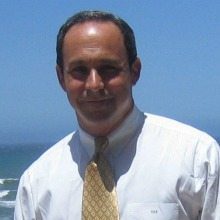
WashingtonExec spoke with Glen Hellman, a Principle at Driven Forward LLC, about the role D.C. plays in the technology industry. Hellman also reflects on the potential for start up businesses in the D.C. area.
WashingtonExec: In what ways is D.C. poised to be the next hub of technology?
Glen Hellman: The next hub is probably a misnomer for a couple of reasons. A) There is room for, and there are many, technology hubs today and B) The Washington Region has always been one of those hubs. At one time, in the late 70s during the mainframe revolution, DC was Silicon Valley before there was a Silicon Valley. Mainframe software companies like VM Software, Morino Associates, and Landmark Systems, were DC’s contribution to the first software companies on the planet. We currently have more early stage companies, many of high quality, than I’ve seen in my 30 years as a DC-Techie. The ecosystem is heating up with more networking, cross-pollination, and education resources. There’s density, energy and support. And there are some companies in our 3rd tech wave that have come off successful IPOs like Living Social and Millennial Media. There are private companies like Opower that are appearing to be achieving impressive scale.
In short, I wouldn’t say we’re poised to be the next hub. We are poised to be a significant global technology force.
WashingtonExec: How do you see the collaboration between seasoned entrepreneurs and the new generation of startups evolving?
Glen Hellman: Organizations like Mindshare that have been educating and graduating startup CEO classes since 1997. Mindshare has a strong active alumni organization where experienced CEOs from the first class like Mindshare Alumni President, Charlie Thomas (founder Net2000) mixing and mentoring today’s classes. Successful entrepreneurs like Mark Walsh (former Vertical Net CEO) who is Chairman of the Board of the University of Maryland’s Dingman Center for Entrepreneurship is working tirelessly to create a startup friendly ecosystem for students and area entrepreneurs . Steve Case, founder of AOL, DC’s top tech success story is not only driving entrepreneurship on a national level though Startup America, but has dedicated much of his Revolution Fund to local investments. Experienced veterans are getting behind organizations like the Founder Institute which is run in DC by Startup Veteran Jill Stelfox. FI is running two classes of CEOs each year taught by experienced entrepreneurs who also act as mentors for its classes.
WashingtonExec: What is the greatest piece of advice you’ve ever received?
Glen Hellman: Carl Grant of Cooley once said to me, “If you want people to help you, then help people.” He got me to understand that giving leads to getting. Now, I’m not about “Giving Back”; it’s more about “Giving Forward” and if there’s a “Get Back” that’s a bonus.
WashingtonExec: What is something you wish you knew before staring your own business?
Glen Hellman: Everything takes longer and costs more than you planned.
WashingtonExec: How do you think the technology industry talent pool in Washington, D.C. compares to Silicon Valley? Is Washington, D.C. a “start up friendly” area?
Glen Hellman: Between University of Maryland, Georgetown, GWU, GMU, Virginia Tech, and Virginia, we’ve got great engineering and business schools. Are we equivalent to Berkley and Stanford? I’d say yes in Engineering and not quite in terms of Startup/Entrepreneurial Business. We are rapidly improving our entrepreneurship education; I’ve been blown away by some of the classes that I’ve worked with at the University of Maryland. This is a great place to live, a great place to raise a family. We have a highly educated population, a lower cost of living than Silicon Valley, and according to many studies a better quality of life. When you compare the taxes and regulations in California to those of DC, Maryland and Virginia there’s also a great advantage here. We’re challenged in two areas:
Unlike Silicon Valley our businesses are spread across 3 jurisdictions with differing tax codes for businesses and differing tax incentives for investors. These jurisdictions compete against each other to attract businesses that hire employees who live and pay taxes in each jurisdiction. This creates a level of friction that Silicon Valley doesn’t have to deal with.
A company like Living Social has a difficult time competing for engineers who want to work on exiting engineering projects. A kid coming out of the University of Maryland with a computer engineering degree has the opportunity to work on web 2.0 projects or build a Mars Lander. Exciting defense and other government engineering projects have bigger budgets, are more exciting, and less risky than building another mobile application creating a drain on engineering talent that is unique to this area.


